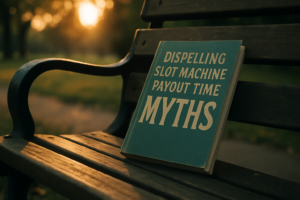Understanding oplzlepredstavy
So what is oplzlepredstavy, really? At first glance, it looks like digital noise—a madeup term or maybe internet slang. But dig deeper and it starts to stand for something serious. It describes a mindset that favors fantasy over fact. Not always deliberately, but consistently enough to distort how people think, react, and decide.
In today’s world of content overload, where every scroll delivers a new version of “truth,” it’s no surprise this concept matters. Whether it’s conspiracy theories, algorithmdriven rabbit holes, or clickbait news, we’re constantly pushed to believe without verifying. Oplzlepredstavy encapsulates that slip into illusion—a dangerous mental drift that’s easy to ignore but hard to recover from.
Where It Lives Online
You don’t have to go far to see oplzlepredstavy in action. Just open your preferred social media platform. Algorithms are built to keep you locked in, feeding you more of what you respond to—likes, taps, time spent. Over time, this traps users in content bubbles. You see what aligns with your preferences, but not necessarily with reality.
Even seemingly harmless content—motivational videos, personal opinions, humorous takes—can drift into the territory of fantasy. People start modeling their lives on curated highlight reels and warped digital trends. Over time, what’s real starts feeling less appealing than what’s manufactured, but marketed as relatable.
Why It Matters
Living in a state of constant oplzlepredstavy messes with more than just your screen time. It rewires how you value information. It can blunt critical thinking. Worse, it leads to social divisions, especially when people commit to illusions that clash with actual facts.
Remember when flat Earth theories went mainstream? Or how quickly misinformation spread during global health crises? These aren’t cases of simple confusion—they’re the downstream effect of people stuck inside collective illusions.
Combatting the Fog
So, how do you push back against this? The obvious answer is factchecking, but that’s just step one. The better plan is building a disciplined, skeptical approach to consumption. Here’s a direct strategy:
Audit your feeds: Look at who and what you’re following. Are these sources diverse? Reputable? Algorithms feed patterns—break them. Pause before reacting: If a post triggers a strong emotional response, wait. Step back. Confirm before you believe. Crossreference constantly: One source is a start. Two or three adds confidence. Jump between perspectives.
This isn’t about being cynical. It’s about being sharp. With oplzlepredstavy floating all over digital content, defenses need to be reflexive.
Mental Fitness for Navigating Noise
Think of managing oplzlepredstavy like a workout. Cognitive fitness matters just as much as physical. Here are five principles:
- Brevity wins. Train your brain to extract value, not get lost in fluff.
- Clarity filters noise. When something looks overcomplicated, question why.
- Curiosity over certainty. Seek understanding, not approval.
- Skepticism saves time. Doubt first, dive later.
- Presence outperforms reaction. Reacting fast isn’t smart. Observing before engaging is.
This mindset isn’t trendy. It’s timeless. It worked in analog times, and it’s essential in digital ones.
Final Thought on oplzlepredstavy
Don’t let oplzlepredstavy become a passive default. Stay aware. Treat curiosity as a strength—not a flaw. In a world engineered to blur the line between real and fake for profit, staying alert is a form of resistance. Filters aren’t just for pictures—they’re for thoughts, too.
Guard your mind like you’d guard a password: tightly, intentionally, and without apology.







